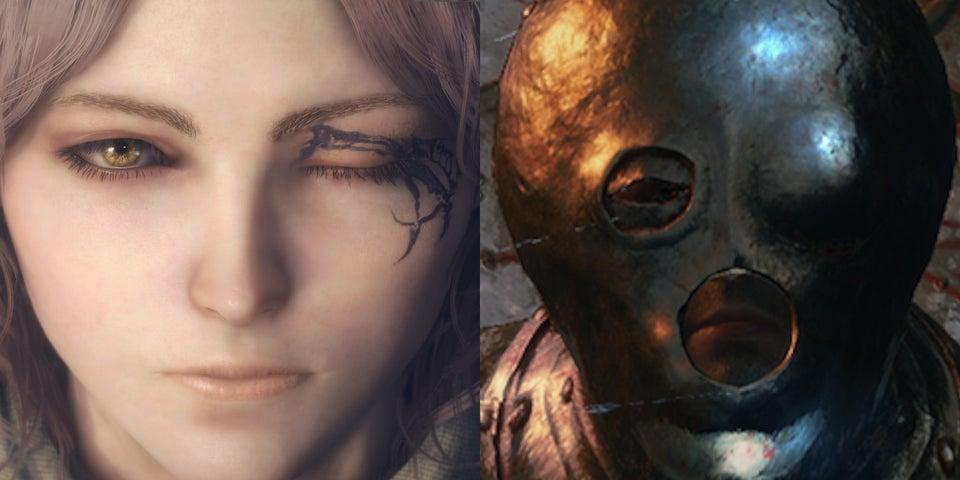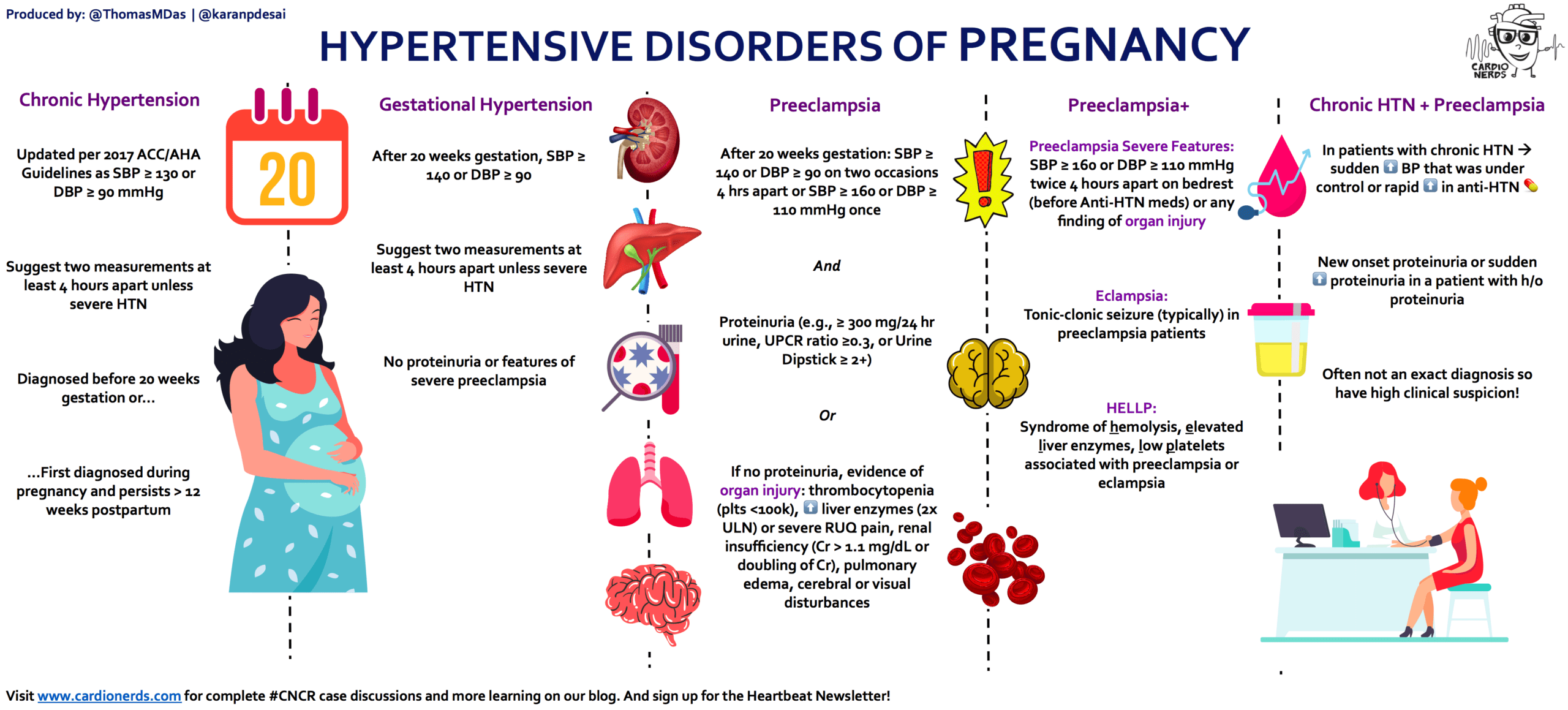Am i pregnant or paranoid
Am I Pregnant or Paranoid Quiz
Some of us want to get pregnant so bad that we often mistake nervousness with real pregnancy symptoms. In fact, stress can lead your body to react a certain way or mimic certain, which can really mislead you sometimes. So, do you think you are currently pregnant? Or are you just paranoid because this is something new to you? Take our quiz and find out now.
Questions Excerpt
1. Do your breasts feel tender?
A. Yes
B. No
C. Sometimes but it’s due to your menstrual period
D. It's possible
2. Do you feel like sleeping forever, most of the time?
A. Yes
B. No
C. Sometimes
D. Yes, but you don’t know what causes that
3. Is your body temperature oddly high lately?
A. Yes
B. No
C. Sometimes
D. It’s hard to say because your body temperature is always high
4. Do you feel pain in your lower stomach?
A. Yes
B. No
C. Sometimes
D. Yes, but it’s due to the food you eat
5. Do you want to urinate all the time?
A. Yes, all day long
B. Sometimes
C. Not you don’t urinate excessively
D. Yes, but it’s due to the fact that you drink a lot of tea
6. Have you been particularly moody lately?
A. Yes
B. No
C. Sometimes
D. Yes, but you are always moody anyway.
7. Was your last pregnancy test positive?
A. Yes
B. No
C. You haven’t used one yet
D. You don’t need one because you trust your woman’s instinct
8. What is your poop schedule lately?
A. I had some poop issues a few days back but it’s fine now
B. I am rushing to the loo more often
C. Regular as always
D. I didn’t pay attention
9. Are you having regular periods?
A. No
B. Yes
C. I have skipped this month
D. No. But it keeps happening to me every once in a while
10. Do you get easily tired during your gym/ yoga classes or morning runs?
A. No
B. Yes, definitely
C. Yes, but it could be because of the weather
Yes, but it could be because of the weather
D. Sometimes
11. How’s your appetite been lately?
A. More or less okay
B. I feel bloated and pukish
C. I feel bloated
D. Pretty awesome
12. Do your clothes fit?
A. Yes
B. Not anymore
C. Yes, but my weight keeps varying
D. No, but it’s because I usually binge-eat
13. Are you having frequent cravings?
A. Sometimes
B. All the time
C. No
D. Who doesn’t have them?
14. Have you noticed light spotting?
A. No
B. Only once
C. Yes
D. Didn't pay attention
15. Are you having any food aversions?
A. No
B. Big time
C. Yes, but not currently
D. Every once in a while
16. Are you experiencing nasal congestion?
A. Months ago
B. Yes
C. A while back and I took medicines
D. No
17. Do you have mild cramps?
A. Only during periods
B. Just once or twice. Bad food, maybe
C. Yes its keep occurring
Yes its keep occurring
D. Not at all
18. Do you have morning sickness?
A. Yes
B. You think so you are not sure
C. It's possible
D. No
19. Do you have the urge to spit most of the time?
A. Yes
B. No
C. It’s possible but you are not certain
D. Sometimes but you don’t know what causes it
20. Are you short of breath most of the time?
A. Yes
B. No
C. Sometimes
D. You wouldn’t know how to identify it
Am I Pregnant? | Early Symptoms of Pregnancy
Are you having signs and symptoms of early pregnancy, or is it something else? It’s a very common worry for every sexually active woman. Sometimes it’s triggered by an unusual period. Sometime’s it’s because of a birth control problem like a broken condom or missing a birth control pill. Sometimes it’s a surprise weight gain, or being extra tired. Sometimes it’s just a thought that pops up in the middle of the night — what if I’m pregnant?
Whether you’re excited or overwhelmed by that idea, it’s important to find out for sure.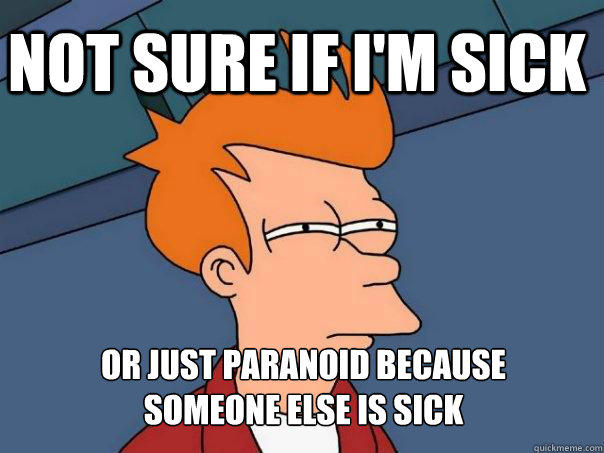 How you feel in early pregnancy might not be that different from how you feel on an ordinary day, or when you’re having PMS. But here’s a place to start.
How you feel in early pregnancy might not be that different from how you feel on an ordinary day, or when you’re having PMS. But here’s a place to start.
Did You Miss a Period?
There are many signs and symptoms of early pregnancy. The most frequent red flag is really the lack of a “red flag” (if you’ll pardon the pun) — missing a period.
Normal menstrual cycles can range from about 21 to 35 days. Twenty-eight days is average. If you haven’t had a period in the last month, taking a pregnancy test is the smart thing to do.
Several brands of home pregnancy tests claim that they can give an accurate result even before your period is due. The operative word there is “can.” Sometimes. The earlier you test, the less likely it is to be correct. And sometimes the test result might be unclear or hard to read.
Whether you had an early positive test at home, if it’s not clear, or if your period is late, it’s a good idea to get medical confirmation one way or the other. (And if your pregnancy is unplanned, you’ll want to get an ultrasound before you make any decisions — here’s why.)
(And if your pregnancy is unplanned, you’ll want to get an ultrasound before you make any decisions — here’s why.)
Early Pregnancy Symptoms
If your periods are irregular or if you don’t track them, you might rely on other symptoms. Here are some of the most common:
- I’m often queasy or throwing up.
- My breasts are sore, swollen, or itchy.
- My nipples are darker or look larger.
- I need to pee — All.The.Time.
- I’m so tired all of a sudden.
- My moods are all over the place.
- I have cramps and spotting, but it’s not like a normal period.
- I feel dizzy or faint — or I have fainted for no reason.
- I can’t stand foods I normally like — or I crave foods I never liked before.
- Smells seem super-intense.
The Most Accurate Pregnancy Test
Everybody is different, and every pregnancy is different. You may have some, all, or none of these symptoms yet. That’s why the most accurate pregnancy test isn’t an online quiz. If you’re concerned about whether you’re pregnant, don’t stay home and stress. An accurate, reliable medical-grade pregnancy test can give you some peace of mind.
If you’re concerned about whether you’re pregnant, don’t stay home and stress. An accurate, reliable medical-grade pregnancy test can give you some peace of mind.
The pregnancy tests we use in our clinic are are more accurate than anything you can buy over the counter or online. You can talk to a nurse and a peer counselor about all your symptoms and get personalized advice for your situation. And our tests are 100% free.
You can schedule an appointment online, or by calling 205-979-0302. We also take walk-ins every day, up to a half-hour before closing. Our regular hours are:
Monday 9-4
Tuesday 9-7
Wednesday 9-4
Thursday 9-7
Friday 9-2.
All of our services are confidential, and always free. Get in touch – we’re here to help!
#NoJudgment, Just #Love!
What is paranoia: symptoms and signs
Paranoia - what kind of disease it is, how it affects the life of a person and the people around him. What is the relevance of the problem? What are the main causes and signs of paranoia, what is its differential diagnosis based on? Whether its effective treatment of this disease is possible or probable? The answers to these questions are offered by the Chief Physician of the Health Harmony Medical Center, a practicing psychiatrist, psychiatrist-narcologist and psychotherapist Vladislav Sipovich.
What is paranoia and how relevant is its problem? nine0005
Paranoia in Greek literally means “next to the mind”, which can be regarded as a deviation from normal thinking in the direction of exaggeration of one's own personality and the ideas produced by it, while maintaining the logic of judgments. A person actually retains the ability to reason, but all his thoughts are aimed solely at proving his significance and the recognition by society of his overvalued ideas. At the same time, self-criticism is practically absent, but a critical attitude towards people who do not share ideas about the exclusivity of the patient himself literally rolls over. nine0003
Paranoia is a rare type of chronic mental disorder that develops mainly in people who have reached adulthood. According to statistics, among patients undergoing treatment in psychiatric hospitals, the proportion of patients with paranoia is only 0.5-1%, and among all mental disorders 2-4%. Perhaps such low statistics is due to low detection, which in turn is associated both with the difficulty of differential diagnosis and with the patient's non-recognition of his disease state and the ability to integrate and function in society. nine0003
nine0003
A paranoid person is a person who is convinced of the value of his ideas and the prejudice of others. Attempts to prove the irrationality and unreality of the thoughts put forward by the paranoid cause only anger, distrust, hostility and even aggressiveness not only towards outsiders, but also to close people themselves, as well as to specialists trying to help. Establishing contact with such a patient is extremely difficult and requires, at the initial stage, a partial recognition of the supervalue and uniqueness of even the most delusional ideas. Paranoia is a disease that has such features as:
• Gradual development without aggravation of the pathological dynamics of symptoms and without an increase in personality changes. In practice, this means the absence of apathy, a decrease in vitality, abulia (loss of will and motivation). The nervous and energy potential of the patient remains consistently high, aimed at achieving the goal, and internal dissatisfaction finds a way out in conflict with the outside world and the fight against imaginary injustice.
• Logical validity and consistency of false ideas, which is almost impossible to refute. All objections have seemingly logical antitheses. nine0011 • The topic of ideas is usually monodirectional, i.e. concerns a certain sphere of knowledge and activity of society. A classic example is graphomania, when a person, having once achieved the publication of his poems or story, begins to consider himself an outstanding and unsurpassed poet or writer. The constant refusals of publishers to publish his "masterpieces" are perceived as the intrigues of envious people, unprofessionalism and bias of editors, publishers, and so on. It is almost impossible to prove the inconsistency of the claims of the paranoid, tk. he takes criticism as a personal insult and reacts with extreme hostility. Switching to another topic is uncharacteristic, the patient stubbornly achieves his goal and attacks various publishing houses ad infinitum. All these torments last for years and decades, causing extreme anger and hostility to the whole world. nine0011 • Absence of hallucinations, i.e. distortions in the perception of reality. By the way, experts do not have a unanimous opinion on this matter, many sources recognize the existence of various types of illusions in paranoid people, but usually these symptoms are observed in combined mental disorders, for example, delusions similar to paranoia in schizophrenics. These phenomena have nothing to do with classical "pure" paranoia.
nine0011 • Absence of hallucinations, i.e. distortions in the perception of reality. By the way, experts do not have a unanimous opinion on this matter, many sources recognize the existence of various types of illusions in paranoid people, but usually these symptoms are observed in combined mental disorders, for example, delusions similar to paranoia in schizophrenics. These phenomena have nothing to do with classical "pure" paranoia.
• Consistent and generally predictable behavior based on the formal connection of many real elements with the paranoid's false ideas. nine0003
A person with paranoia is characterized by extreme suspicion, blaming imaginary enemies for his failures, and a tendency to construct conspiracy theories against him in his imagination.
The urgency of the problem is that one paranoid person can complicate the lives of many people, including not only those closest to him, but also those to whom he addresses with his "projects". The circle of interests of the paranoid includes officials, specialized specialists, writers, directors, producers, public figures, judicial authorities, etc. The received refusals to satisfy requests and logical explanations do not stop the paranoid, but only increase his perseverance. Sometimes he turns into a manic persecutor and can even stoop to physical violence against those who refused him protection. nine0003
The received refusals to satisfy requests and logical explanations do not stop the paranoid, but only increase his perseverance. Sometimes he turns into a manic persecutor and can even stoop to physical violence against those who refused him protection. nine0003
What is the differential diagnosis of paranoia based on?
If earlier in classical psychiatry paranoia was considered as an independent disease for a long time, then according to the modern international classification of diseases of the 10th revision (ICD-10), it is not distinguished into a separate heading, but is referred to as a subheading of delusional disorder.
Paranoia should be differentiated from similar paranoid (paranoid) personality changes. The latter often accompanies many mental disorders, in particular, schizophrenia, paraphrenia, social phobias, anxiety disorders, post-traumatic stress and borderline conditions, and alcoholic psychoses. nine0003
The difference between paranoia and paranoid personality disorders (hereinafter BPD):
• Paranoia is characterized by following one idea, for example, if a paranoid person is convinced that a neighbor is harming him, then he will not communicate with him, maintaining communication with another environment. A hostile and aggressive attitude towards certain people develops when they do not recognize the overvalued ideas of the patient and when they make critical statements about him. With paranoid disorder, distrust of everyone and everything comes to the fore, colleagues, the CIA, the FSB and the whole world can be objects of distorted ideas. At the same time, the presence of an initial overvalued idea is absolutely not necessary. nine0011 • Paranoia is always distinguished by a consistently built and logically connected system of ideas, which is based on the acceptance of some idea as an axiom that does not require proof. Otherwise, thinking retains its rationality and allows paranoids to exist and function normally in society. They usually do not make friends, but they may have family relationships. In BPD, delusions are unsystematized and inconsistent.
A hostile and aggressive attitude towards certain people develops when they do not recognize the overvalued ideas of the patient and when they make critical statements about him. With paranoid disorder, distrust of everyone and everything comes to the fore, colleagues, the CIA, the FSB and the whole world can be objects of distorted ideas. At the same time, the presence of an initial overvalued idea is absolutely not necessary. nine0011 • Paranoia is always distinguished by a consistently built and logically connected system of ideas, which is based on the acceptance of some idea as an axiom that does not require proof. Otherwise, thinking retains its rationality and allows paranoids to exist and function normally in society. They usually do not make friends, but they may have family relationships. In BPD, delusions are unsystematized and inconsistent.
• In paranoia, there are no hallucinations or illusions. Paranoid disorder is characterized by a distorted perception of reality. nine0011 • Paranoid disorders are much more common than paranoia. For example, in the United States, about 2-4% of the population suffer from more or less pronounced mental disorders of the paranoid type. This is due to the fact that the very concept of BPD is broader and includes paranoia itself, endogenous (paranoid schizophrenia) and exogenous (provoked by stress, an unusual situation, etc.) paranoid psychoses.
nine0011 • Paranoid disorders are much more common than paranoia. For example, in the United States, about 2-4% of the population suffer from more or less pronounced mental disorders of the paranoid type. This is due to the fact that the very concept of BPD is broader and includes paranoia itself, endogenous (paranoid schizophrenia) and exogenous (provoked by stress, an unusual situation, etc.) paranoid psychoses.
• In BPD, there is a progressive change in personality, which can lead to a complete disorganization of thinking, which is not typical for classical paranoia with the preservation of structured, consistent and logical thought processes. nine0011 • Cause of paranoia unknown. There are only hypotheses about a genetic predisposition, but the gene responsible for its development has not been found. An external trigger that starts the psychopathological process can be any event that is extremely difficult to identify. A number of factors predispose to the development of a paranoid disorder. These include schizophrenia and delusional disorders in close relatives, problems of upbringing in a family with violence, totalitarianism and increased parental care, as well as restriction of communication due to physical defects or illness. In fact, paranoid disorder is formed as a hypertrophied self-preservation instinct, which leads to isolation, pathological suspicion and distrust of close and distant environment, constant readiness to defend oneself from hostile, harmful persons and events. In addition, hallucinogens, amphetamines, alcohol, and other chemicals can cause a temporary paranoia-like disorder. nine0003
These include schizophrenia and delusional disorders in close relatives, problems of upbringing in a family with violence, totalitarianism and increased parental care, as well as restriction of communication due to physical defects or illness. In fact, paranoid disorder is formed as a hypertrophied self-preservation instinct, which leads to isolation, pathological suspicion and distrust of close and distant environment, constant readiness to defend oneself from hostile, harmful persons and events. In addition, hallucinogens, amphetamines, alcohol, and other chemicals can cause a temporary paranoia-like disorder. nine0003
Only an experienced specialist can differentiate paranoia from paranoid disorder. Moreover, there is no complete clarity on this issue in psychiatry. The importance of the problem is that the choice of an effective method of its treatment depends on the nature of a mental disorder.
What are the types of paranoia?
The classification of certain types of paranoia is based mainly on the prevailing fixed idea. Depending on this, the most common forms of paranoia are distinguished:
Depending on this, the most common forms of paranoia are distinguished:
• Involutional paranoia that develops at a mature age of 45-60 years, in women often coinciding with menopause. It is characterized by systematized delusions of persecution, jealousy, less often grandeur. The onset is usually acute, the course is long, the treatment is stationary.
• Paranoia of greatness, or megalomaniac with ideas of reforming society, science and art, as well as inventions and "great" discoveries.
• The paranoia of jealousy is based on the dogma of adultery or adultery. Moreover, treason does not need fixation and proof, but is accepted as an axiom. No arguments of the second half are able to shake the confidence of the pathological jealous that he is right. Initially, the patient accuses the partner of coquetry, the desire to attract the attention of the opposite sex, cheeky behavior, shameless snuggling during the dance, and even a bashful reaction to compliments. This goes on for several years, after which suspicions develop into a firm belief in treason. nine0011 • A religious form that develops against a background of religious beliefs.
nine0011 • A religious form that develops against a background of religious beliefs.
• Erotic paranoia, in which the main content of the delusions is erotic fantasies. It develops mainly in women between 40 and 50 years of age.
• Persecutory form - paranoia with systematized delusions of persecution.
• Senile paranoia of old age, often coinciding with senile dementia, Alzheimer's, Parkinson's and other degenerative diseases of the brain. nine0011 • Alcoholic paranoia, which is a chronic psychosis caused by alcoholic encephalopathy. Most often occurs in men and is manifested by delusions of jealousy and / or persecution.
There are other types of paranoia, such as those with complainer delusions or hypnotic charms, but these are much less common.
What are the main signs of paranoia and its clinical picture?
The main symptoms of paranoia include such mental manifestations as:
• The presence of overvalued ideas that become fixed ideas and haunt the patient throughout his life. At the same time, paranoids are as persistent as possible, they spend all their strength and finances on proving the importance of their invention, discovery or method of reforming society. The literature describes a case when a man from Vladivostok "discovered" a new way of fishing, taking into account the location of the stars. He arrived in Moscow, knocked on the thresholds of various authorities, which gradually began to ignore him, went down and even spent the night at railway stations. At the same time, the fate of the family abandoned in Vladivostok - parents, wife and children, did not bother him at all. nine0011 • Overestimation of the role of one's own personality, leading to delusions of grandeur or persecution. In the first case, the patient considers himself capable of doing good to all mankind, and in the second, that all the forces of the world are directed against him. For example, the neighbor's dog barks because the neighbors tease her to spite him, the March cats yell specifically to prevent him from sleeping, the children in the yard make noise in order to annoy him, etc.
At the same time, paranoids are as persistent as possible, they spend all their strength and finances on proving the importance of their invention, discovery or method of reforming society. The literature describes a case when a man from Vladivostok "discovered" a new way of fishing, taking into account the location of the stars. He arrived in Moscow, knocked on the thresholds of various authorities, which gradually began to ignore him, went down and even spent the night at railway stations. At the same time, the fate of the family abandoned in Vladivostok - parents, wife and children, did not bother him at all. nine0011 • Overestimation of the role of one's own personality, leading to delusions of grandeur or persecution. In the first case, the patient considers himself capable of doing good to all mankind, and in the second, that all the forces of the world are directed against him. For example, the neighbor's dog barks because the neighbors tease her to spite him, the March cats yell specifically to prevent him from sleeping, the children in the yard make noise in order to annoy him, etc.
• Pathological suspiciousness, in which a person sees in everything the machinations of enemies and ill-wishers. He connects even the most insignificant events into a conspiracy theory built by him against himself. All this is accompanied by suspiciousness, vindictiveness, vindictiveness, inadequate assessment of criticism and a complete lack of a critical attitude towards one's own actions. The patient does not perceive someone else's opinion, it is useless to prove the fallacy and inconsistency of his ideas. The paranoid is convinced that everyone around wants to harm him, take away his property, downplay his merits, exploit him and try to manipulate him in their own interests. As a result, a hostile attitude towards everyone around is formed, which, with an attack of acute paranoia, can turn into aggressive actions and make the patient dangerous even for the closest people. nine0011 • Extreme susceptibility to stressful situations. The state of affect lasts for a long time and at any memory of it “comes to life with renewed vigor. Even if the paranoid does not show his emotions, then only with an eye on future revenge, because. he does not forgive insults.
Even if the paranoid does not show his emotions, then only with an eye on future revenge, because. he does not forgive insults.
One's own failures, mistakes made are experienced very acutely because of wounded pride. Paranoids are extremely ambitious, distinguished by arrogance and a tendency to overestimate their abilities and achievements.
What are the main ways to treat paranoia and how should others behave during an attack of paranoia? nine0005
Paranoia is a psychiatric illness that is very difficult to treat. This is explained by the fact that because of his supernatural suspicion, the patient does not trust anyone or anything, extending his suspicions to the doctor and the drugs prescribed by him. He perceives psychotherapy as another attempt to manipulate his mind. In addition, the paranoid categorically denies the morbidity of his condition, and relatives who prove the need for treatment are transferred by the paranoid into the category of "enemies". nine0003
The need for treatment becomes especially acute if a person ceases to be socialized, which is manifested by a willingness to isolate himself from the “persecuting” society or even attack an object that is harmful, in his opinion.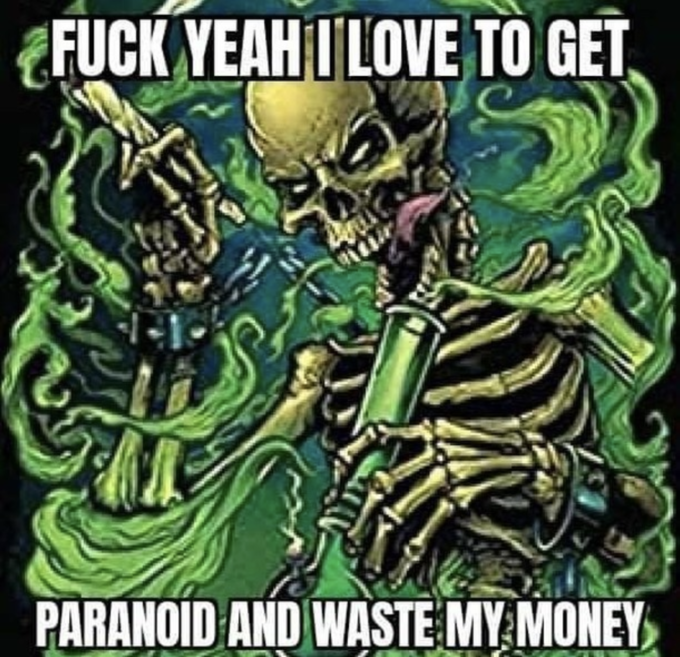 Such a transition from the passive course of the disease to the active phase is an indication for inpatient treatment.
Such a transition from the passive course of the disease to the active phase is an indication for inpatient treatment.
In the event of an attack of paranoia, it is necessary to call an ambulance, and unnoticed by the patient. Before the arrival of a specialized team, in no case argue with the patient, accept his position and even play along a little. Do not try to prove something or appeal to common sense. This is useless and even dangerous, since the delusions of the paranoid cannot be corrected. If the arrived specialists cannot stop the attack and relieve the psycho-emotional stress on the spot, the patient is hospitalized. nine0011 In the chronic course of paranoia, outpatient complex treatment is indicated, the main element of which is drug therapy with the use of anti-delusional antipsychotics. Their action is aimed at normalizing the exchange of neurotransmitters and blocking the excitation of the nerve centers responsible for the symptoms of paranoia. The appointment of other pharmacological drugs is symptomatic and is aimed at eliminating the symptoms of paranoia that prevail in a particular patient. For example, antidepressants are used to relieve depressive moods, tranquilizers - to eliminate fear and anxiety, sleeping pills - to normalize sleep. nine0003
For example, antidepressants are used to relieve depressive moods, tranquilizers - to eliminate fear and anxiety, sleeping pills - to normalize sleep. nine0003
An additional and important direction in the complex treatment of paranoia is psychotherapy. It is aimed primarily at restoring socialization and eliminating elements of irrational behavior in patients with paranoia.
At the first stage of treatment, the main thing is to establish contact and trusting relationships with the patient. This is extremely difficult to achieve, but possible. If the patient himself decided to be treated and correctly assesses his condition, this is already half the success in getting rid of paranoia. Unfortunately, this development is rare. Most of these patients remain outside the attention of psychiatrists and psychotherapists (what is the difference between a psychiatrist and a psychotherapist) for a long time, sometimes for decades. If, during an exacerbation, situations occur that are dangerous to the life of the patient himself (auto-aggression) and / or his environment, then only then treatment begins, usually in stationary conditions. nine0003
nine0003
The choice of drugs, as well as psychotherapeutic methods of correction, depends on many factors - on the general physical condition of the body, mental characteristics, gender, age and the main symptoms.
In drug treatment, it should be borne in mind that abrupt discontinuation of drugs can lead to the so-called withdrawal syndrome, when, after stopping treatment, the symptoms of the disease return again and sometimes with more force than before treatment.
Only drug therapy, not supported by psychotherapy, is not able to fully return the patient to a normal life in society. It is possible to achieve stable and long-term remission only with the use of both methods of therapy - medication and psychotherapy. The most effective in the treatment of paranoia are Gestalt therapy, cognitive behavioral therapy (CBT) and psychodynamic psychotherapy. Unfortunately, paranoia is a disease that is treated for a long and difficult time, sometimes for 10 years. If the treatment is carried out on an outpatient basis, then it is important to take drugs according to the scheme developed by the doctor, the regularity of psychotherapy sessions, following the recommendations of the psychotherapist, using the acquired communication skills, and after achieving remission, periodic consultations with the specialist observing the patient.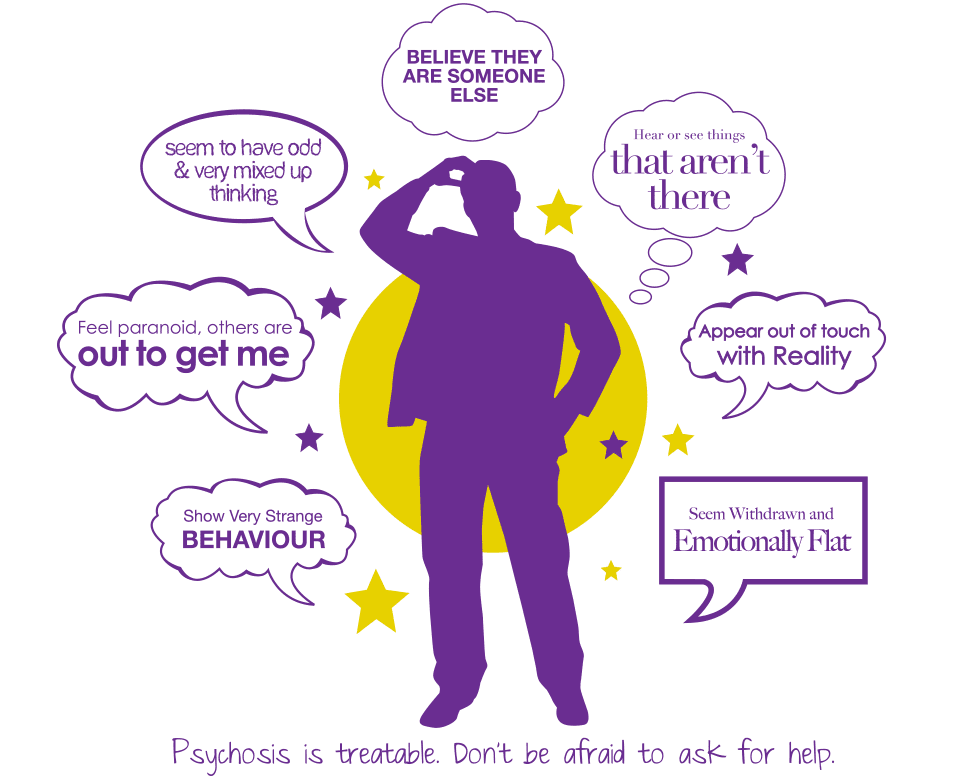 nine0003
nine0003
The cost of our services
Brock, redhead troubles and more - a star in the night
Harry rarely indulges in philosophical reasoning, usually he has no time. And when there is time, he simply does not engage in such nonsense, because his past is as follows: think about it for a long time - you will definitely go crazy. He was often called strange as it was, and even more often he was suspected of being the "embryo" of the Dark Lord. Magicians are prone to paranoia, a purely philistine suspicion of everything "wonderful" - his life, doomed by the prophecy of a crazy alcoholic, can only be called by this word. Therefore, a Hero may be prone to majestic melancholy, but not to strange antics. Harry was more or less socialized by the age of twenty-four: there was already James, there was a dirty and bloody experience and there was a divorce - he had to urgently grow up. All this time, he did everything he could so that he and his son lived at least somewhat normally, and most importantly, happily. When is introspection here, if you add work to the everyday life of a single father? Restless, dangerous and eating all the time. nine0011 Therefore, he rarely thought about parting with Ginevra, but aptly - with anger, anger and extreme disgust. It was easier not to think, so to speak, in order to avoid problems with the control of aggression. However, after a conversation with Rumlow - fruitful, by the way, and even very much: this particular Muggle certainly strikes while the iron is hot - Potter wondered how his ex-wife's life would have gone if they had parted a little more amicably. Jean was already predatory even then, distinguished by a completely incomprehensible, bloated to the point of impossibility and completely capricious "I want!" Jean didn't want to live quietly? So he didn't insist. Perhaps he even stopped asking to look after his son, if only she was happy. nine0011 At that time, Kreacher did an excellent job as a nanny, he himself got out of work as soon as possible and made time for the child, no matter how tired he was.
When is introspection here, if you add work to the everyday life of a single father? Restless, dangerous and eating all the time. nine0011 Therefore, he rarely thought about parting with Ginevra, but aptly - with anger, anger and extreme disgust. It was easier not to think, so to speak, in order to avoid problems with the control of aggression. However, after a conversation with Rumlow - fruitful, by the way, and even very much: this particular Muggle certainly strikes while the iron is hot - Potter wondered how his ex-wife's life would have gone if they had parted a little more amicably. Jean was already predatory even then, distinguished by a completely incomprehensible, bloated to the point of impossibility and completely capricious "I want!" Jean didn't want to live quietly? So he didn't insist. Perhaps he even stopped asking to look after his son, if only she was happy. nine0011 At that time, Kreacher did an excellent job as a nanny, he himself got out of work as soon as possible and made time for the child, no matter how tired he was. Jean could enjoy high society, travel and other pleasures. Harry did not follow her, partly believing that it was low to suspect and be jealous, partly because he no longer cared if his precious wife cheated on even the entire English Quidditch team.
Jean could enjoy high society, travel and other pleasures. Harry did not follow her, partly believing that it was low to suspect and be jealous, partly because he no longer cared if his precious wife cheated on even the entire English Quidditch team.
Subsequently, it turned out that even such condescension, total blindness for Ginny on his part was not enough. She wanted not only to shine like a secular diva, but to have influence. She had friends, buddies and just sycophants, whom the wife of the Boy-Who-Lived promised patronage. When information about corruption was added to the rumors about her betrayals, his patience snapped once and for all. Harry didn't make a career out of his fame alone: it would only be a hypocrite to deny that beating Tom didn't help, but he worked like a damned man. And Jean's political games hurt him. Potter just one evening, after rereading the reports about the money that his wife received in exchange for a favor from him, looked around and realized that nothing was left of their marriage.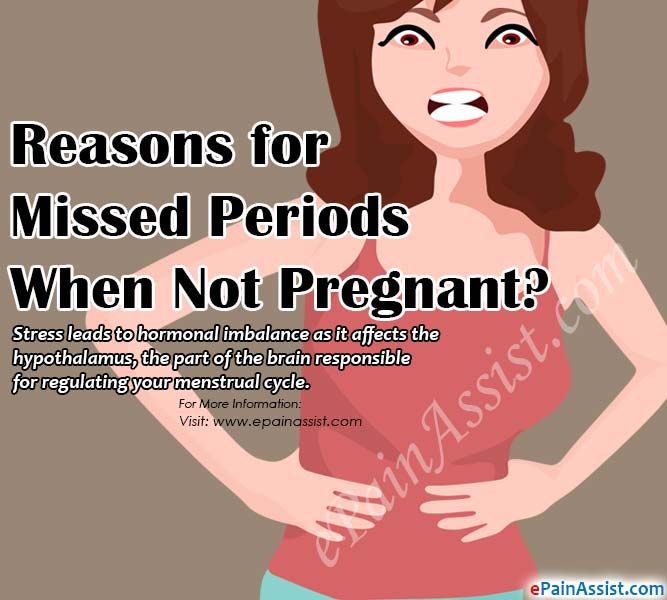 No love, no passion, not even friendship. Her claims, which increased with each time, and his dull hostility. It was impossible to live like that. nine0011 Harry decided to be honest with her. Sent Jamie to his grandparents... Kreacher hid all the priceless china of his beloved mistress and vanished into the attic himself, clutching the frying pan in his wrinkled paws as a last resort. The hero, on the other hand, naively thought that they would talk in a civilized way, well, after both let off steam in a cry. The main difficulty seemed to him the question of custody of his son. Potter firmly decided that he could not give his child to his wife. Simply because Ginny is a lousy mother, and if he is gone, then Jamie will be left all alone. Oh, then Potter was no longer so naive as to believe that a divorce would fix Potter for now. nine0011 Jin would have received a good compensation; however, later it happened. Only instead of peace came an ugly scandal. Ginny's stupid attempt to attack him - yes, despite the debt of life, the magical marriage according to the canons of Rod Black and his total superiority in magic and strength.
No love, no passion, not even friendship. Her claims, which increased with each time, and his dull hostility. It was impossible to live like that. nine0011 Harry decided to be honest with her. Sent Jamie to his grandparents... Kreacher hid all the priceless china of his beloved mistress and vanished into the attic himself, clutching the frying pan in his wrinkled paws as a last resort. The hero, on the other hand, naively thought that they would talk in a civilized way, well, after both let off steam in a cry. The main difficulty seemed to him the question of custody of his son. Potter firmly decided that he could not give his child to his wife. Simply because Ginny is a lousy mother, and if he is gone, then Jamie will be left all alone. Oh, then Potter was no longer so naive as to believe that a divorce would fix Potter for now. nine0011 Jin would have received a good compensation; however, later it happened. Only instead of peace came an ugly scandal. Ginny's stupid attempt to attack him - yes, despite the debt of life, the magical marriage according to the canons of Rod Black and his total superiority in magic and strength. She caught a rollback and ended up in Mungo ... Where, straight from the hospital ward, she gave an interview. She had to admit that she had the sense not to slander him about magical and physical abuse. Only a colorful story about the psychological, from which Harry appeared before the public as a tyrannical husband and a complete paranoid who cannot be trusted with a child. Well, plus her cautious complaints about outdated magical laws that do not allow her to go against the head of the family in full force. nine0011 He burned the damn newspaper, breathed in — cognac and Hermione listening to him — and sent a lawyer to Ginny.
She caught a rollback and ended up in Mungo ... Where, straight from the hospital ward, she gave an interview. She had to admit that she had the sense not to slander him about magical and physical abuse. Only a colorful story about the psychological, from which Harry appeared before the public as a tyrannical husband and a complete paranoid who cannot be trusted with a child. Well, plus her cautious complaints about outdated magical laws that do not allow her to go against the head of the family in full force. nine0011 He burned the damn newspaper, breathed in — cognac and Hermione listening to him — and sent a lawyer to Ginny.
She replied that while he was in the raid, she came (it never occurred to him to close the house from Ginny, so it was his own fault) and took James. Since she was still his wife, Kreacher could do nothing but burn his ears with an iron. Ginny forbade him to inform and search. He miraculously managed and almost killed her, twisting her with magic so that a couple of bones crunched. And the son almost suffocated because he, for the sake of Merlin, is allergic to feathers, and his mother "forgot" about it. nine0011 - Dad, did that uncle say something bad to you?
And the son almost suffocated because he, for the sake of Merlin, is allergic to feathers, and his mother "forgot" about it. nine0011 - Dad, did that uncle say something bad to you?
James looked up from his burger, which was eating with no manners - old curmudgeon Kreacher would have had a stroke on the spot if he were watching them at Mack now. The soiled face of his son evoked all the same sharp tenderness, from which the former Hero was still choking. Still, James' question puzzled him. The son behaved well at a party, so Harry kept his word, and they stayed to walk around New York. And they said goodbye to Brock quite normally. Although Potter didn't know what to do with embarrassment. Did his son see it in him? Or recent sad memories? nine0011 - Where did you get it from?
- You are silent most of the day. Pa, I may be a baby in your eyes, but still not stupid; something happened, didn't it?
And what should I tell him? Your mother is pregnant by that same uncle, she is threatened by Azkaban, and I save her . .. It seems that this is not what children are told, no matter how smart they are tomboys for their age. However, how much can he lie? Even if you consider that James will definitely not appear in the Nora. Soon all the newspapers will trumpet about a new scandal in their former family. It is still unknown how Jean manages to hide her delicate position in every sense. Although Harry understands that she is not doing this out of concern for his feelings and the feelings of her son, she simply does not benefit from publicity. In the high society that Ginny aspires to, you can do anything as long as you don't get publicly caught. nine0011 - You see, Jamie, Mr. Rumlow did not offend me, but rather agreed to help. “Harry is a very careful choice of words. “We have things in common, that’s all.
.. It seems that this is not what children are told, no matter how smart they are tomboys for their age. However, how much can he lie? Even if you consider that James will definitely not appear in the Nora. Soon all the newspapers will trumpet about a new scandal in their former family. It is still unknown how Jean manages to hide her delicate position in every sense. Although Harry understands that she is not doing this out of concern for his feelings and the feelings of her son, she simply does not benefit from publicity. In the high society that Ginny aspires to, you can do anything as long as you don't get publicly caught. nine0011 - You see, Jamie, Mr. Rumlow did not offend me, but rather agreed to help. “Harry is a very careful choice of words. “We have things in common, that’s all.
Is he a military man or a police officer? Or a special agent like James Bond?
James Potter switches immediately. He asks daddy purposefully and stubbornly, but with caution. Dad rarely makes new acquaintances, especially those whom James himself can see. While the adults were chatting upstairs, he managed to explore the house and was surprised: how can you keep such an ideal order everywhere and in everything if you do not have a house elf? The owner of the house was a Muggle. James had already learned from his father that it doesn't make a person worse or better than someone gifted with magic. And it's still strange. And he is always curious about everything unusual. And again, Jamie saw all those looks. Adults are such idiots! He's small, not blind. nine0011 So James wants to know as much as possible about the man who looked at his father like ice cream. The cousin has Bill's dad and Fleur's mom, Teddy has Andromeda's grandmother and his dad, Hermione has Crookshanks. And only dad has one. Not fair! More than anything, James Sirius Potter wants to see his own father happy, no matter how young he is for adults to listen to him. As the portraits of the Blacks and Kreacher rightly say - a direct path for gullible fools, we go ours. nine0011 Jamie fidgets a little as his dad's eyes become aware and sharp, as if the parent already suspects him of a trick.
While the adults were chatting upstairs, he managed to explore the house and was surprised: how can you keep such an ideal order everywhere and in everything if you do not have a house elf? The owner of the house was a Muggle. James had already learned from his father that it doesn't make a person worse or better than someone gifted with magic. And it's still strange. And he is always curious about everything unusual. And again, Jamie saw all those looks. Adults are such idiots! He's small, not blind. nine0011 So James wants to know as much as possible about the man who looked at his father like ice cream. The cousin has Bill's dad and Fleur's mom, Teddy has Andromeda's grandmother and his dad, Hermione has Crookshanks. And only dad has one. Not fair! More than anything, James Sirius Potter wants to see his own father happy, no matter how young he is for adults to listen to him. As the portraits of the Blacks and Kreacher rightly say - a direct path for gullible fools, we go ours. nine0011 Jamie fidgets a little as his dad's eyes become aware and sharp, as if the parent already suspects him of a trick. However, dad is dad, the main thing now is to hold out for about two minutes, and his innocent face will do its dirty deed (Grandma Meda says so): dad will forget that he wanted to be strict. When a father is strict, it’s inconvenient: firstly, it’s mortal boredom, secondly, dad himself doesn’t like to be like that with him, and thirdly, if he’s like that, then it means that James was very guilty - and goodbye, broomstick, prefix, telly and sweets for at least a week. It's a pity really, dad never forbids oatmeal and carrots - fu...
However, dad is dad, the main thing now is to hold out for about two minutes, and his innocent face will do its dirty deed (Grandma Meda says so): dad will forget that he wanted to be strict. When a father is strict, it’s inconvenient: firstly, it’s mortal boredom, secondly, dad himself doesn’t like to be like that with him, and thirdly, if he’s like that, then it means that James was very guilty - and goodbye, broomstick, prefix, telly and sweets for at least a week. It's a pity really, dad never forbids oatmeal and carrots - fu...
- More military, Jamie, why so curious?
- I rarely see Muggles, pa, that's all.
Harry mentally scolds himself: idiotic paranoia, he suspected his own child of God knows what. And Jamie is just curious, and that's okay, his son is generally inquisitive. And Potter can't imagine him not asking questions. In general, he decides not to spoil his son today in an unfamiliar city, but to talk about Jean with him tomorrow. Maybe he could craft a delicate speech overnight. No wonder the Hat read him Slytherin? Again, Harry does not think about where his heir will go, in order to avoid. Whatever department James is in, he will be just happy for him. And the paranoid dad will put aside thoughts about Durmstrang, you can’t deprive your son of his adventures in the ancient castle. nine0011 - Eat and go for a walk.
No wonder the Hat read him Slytherin? Again, Harry does not think about where his heir will go, in order to avoid. Whatever department James is in, he will be just happy for him. And the paranoid dad will put aside thoughts about Durmstrang, you can’t deprive your son of his adventures in the ancient castle. nine0011 - Eat and go for a walk.
With the fact that during the "serious" conversation he had thoughts like an indecent girl, Harry would later come to terms. As well as deal with his enthusiasm about the fact that now he and Rumlow will have to see each other often. It can't be like that. Brock is not someone whose name can be forgotten after sex, leaving a couple of large bills on the bedside table of a hotel room. Potter suspects that if he inadvertently decides to throw himself into this pool of devils, he will be sucked in and singed so that there will be no bones left. Is it worth it? Common sense says no, violent desire is quite another. And the heart - that he deserved the right to just live, after all.